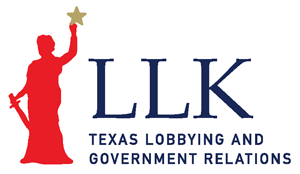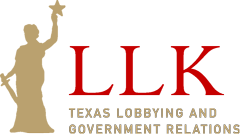The first special session may be in its final hour – but don’t go too far! The Texas 87th Legislature has been called back by Governor Abbott for a second special session starting Saturday at 12 pm. All the need-to-know is below.
Special Sessions
Today marks the last day of this year’s first special session. The Democrats’ absence for the majority of the past few weeks left little hope for the passage of any legislation. Without a quorum in the House, measures to address election integrity, bail reform, Article X of the budget, and more effectively stalled out until the next special session. Governor Abbott has announced that he will call a special session to immediately follow the first’s expiration, starting Saturday, August 7 at 12 pm. Both Governor Abbott and Lieutenant Governor Patrick voiced their intent to pass the elections bill, no matter the number of special sessions it takes. Lieutenant Governor Patrick remarked, “At the end of the day, this bill is going to pass, pretty much in the form that it’s in…because the people of Texas of all colors want safe and secure elections.” Certainly, this discussion is far from over and we’re sure to see the election bill come up in the next special session along with the start of redistricting. Census data should be released by the middle of August. Then, lawmakers and the Texas Legislative Council can get to work on processing and implementing the data for redistricting. Keep in mind that funding for the Texas Legislative Council and other entities involved in redistricting comes from Article X of the budget, which has yet to be approved again after the governor’s line-item veto in June. The current budget expires at the end of this month. It seems that in an effort to address its expiration, the Legislative Budget Board is set to reinstate legislative funding and staff pay through the end of September. Additionally, Governor Abbott’s proclamation for the second special session outlines the following 17 agenda items:
BAIL REFORM: Legislation reforming the bail system in Texas to protect the public from accused criminals who may be released on bail.
ELECTION INTEGRITY: Legislation strengthening the integrity of elections in Texas.
FEDERAL RELIEF APPROPRIATIONS: Legislation providing appropriations from unappropriated available revenues for COVID-19-related healthcare expenses, such as those listed below, taking into consideration the approximately $10.5 billion in funds received by local governments intended to be used on COVID-19 from the American Rescue Plan Act of 2021(ARPA), Pub. L. No. 117-2: healthcare staffing needs, including physicians, nurses, and other medical professionals; establishing, staffing, and operating alternative care sites; supporting the operations of nursing homes, state supported living centers, assisted living facilities, and long-term care facilities; vaccine administration; testing sites; supplies and equipment, such as personal protective equipment (PPE) and ventilators; and standing up and operating infusion centers.
EDUCATION: Legislation providing strategies for public-school education in prekindergarten through twelfth grade during the COVID-19 pandemic, which ensures: students receive a high-quality education and progress in their learning; in-person learning is available for any student whose parent wants it; the wearing of face coverings is not mandatory; and COVID-19 vaccinations are always voluntary.
BORDER SECURITY: Legislation enhancing criminal laws or providing funding from unappropriated available revenues to support law-enforcement agencies, counties, and other strategies as part of Texas’ comprehensive border security plan.
SOCIAL MEDIA CENSORSHIP: Legislation safeguarding the freedom of speech by protecting social-media and email users from being censored based on the user’s expressed viewpoints, including by providing a legal remedy for those wrongfully excluded from a platform.
ARTICLE X FUNDING: Legislation providing appropriations from unappropriated available revenues to the Legislature and legislative agencies in Article X of the General Appropriations Act.
FAMILY VIOLENCE PREVENTION: Legislation similar to Senate Bill 1109 from the 87th Legislature, Regular Session, requiring schools to provide appropriate education to middle- and high-school students about dating violence, domestic violence, and child abuse, but that recognizes the right of parents to opt their children out of the instruction.
YOUTH SPORTS: Legislation identical to Senate Bill 29 as passed by the Texas Senate in the 87th Legislature, Regular Session, disallowing a student from competing in University Interscholastic League athletic competitions designated for the sex opposite to the student’s sex at birth.
ABORTION-INDUCING DRUGS: Legislation similar to Senate Bill 394 from the 87th Legislature, Regular Session, which prohibits people from providing abortion-inducing drugs by mail or delivery service, strengthens the laws applicable to the reporting of abortions and abortion complications, and ensures that no abortion-inducing drugs arc provided unless there is voluntary and informed consent.
THIRTEENTH CHECK: Legislation similar to House Bill 3507 from the 87th Legislature, Regular Session, relating to a “thirteenth check” or one-time supplemental payment of benefits under the Teacher Retirement System of Texas.
CRITICAL RACE THEORY: Legislation similar to House Bill 3979 concerning critical race theory as originally passed by the Texas Senate in the 87th Legislature, Regular Session.
APPROPRIATIONS: Legislation providing appropriations from unappropriated available revenues for the following purposes: property-tax relief; enhanced protection for the safety of children in Texas’ foster-care system by attracting and retaining private providers for the system; and to better safeguard the state from potential cybersecurity threats.
PRIMARY ELECTIONS: Legislation modifying the filing periods and related election dates, including any runoffs, for primary elections held in Texas in 2022.
RADIOACTIVE WASTE: Legislation reforming the laws governing radioactive waste to protect the safety of Texans, including by further limiting the ability to store and transport high-level radioactive materials in this state.
EMPLOYMENT: Legislation shielding private employers and employees from political subdivision rules, regulations, ordinances, and other actions that require any terms of employment that exceed or conflict with federal or state law relating to any form of employment leave, hiring practices, employment benefits, or scheduling practices.
STATE LEGISLATURE: Legislation relating to legislative quorum requirements.
Covid-19 in Texas
Texas is in the midst of yet another major wave of Covid-19 cases. Largely attributed to the new Delta variant, the renewed increase in cases have prompted Governor Abbott to urge Texans to get vaccinated and act responsibly, emphasizing that such actions are, and will continue to be, voluntary. His mask ban, issued in May and which bars counties, cities, school districts, public health authorities, and government officials from requiring facial coverings, remains in place despite doubling case numbers and overwhelmed ICUs. Last Thursday, Governor Abbott issued an executive order to “provide clarity and uniformity in the Lone Star State’s continued fight against COVID-19.” With the issuance of the order he announced, “The new Executive Order emphasizes that the path forward relies on personal responsibility rather than government mandates. Texans have mastered the safe practices that help to prevent and avoid the spread of COVID-19. They have the individual right and responsibility to decide for themselves and their children whether they will wear masks, open their businesses, and engage in leisure activities. Vaccines, which remain in abundant supply, are the most effective defense against the virus, and they will always remain voluntary – never forced – in the State of Texas.”
Texas Primaries
Following the election of current state Representative Jake Ellzey to Congress, former Texas state Representative John Wray seeks election to House District 10. He served as a member of the Texas House from 2015 to 2021 for three terms, and was succeeded by Jake Ellzey. Nelson Jarrin announced his candidacy for House District 52 challenging Representative James Talarico. Senator Bryan Hughes endorsed Caroline Harris in the same race for the House District 52 seat.
Stay tuned for more news from the Texas 87th second special.
Until next time,
Lara Laneri Keel
President, LLK, LLC.


